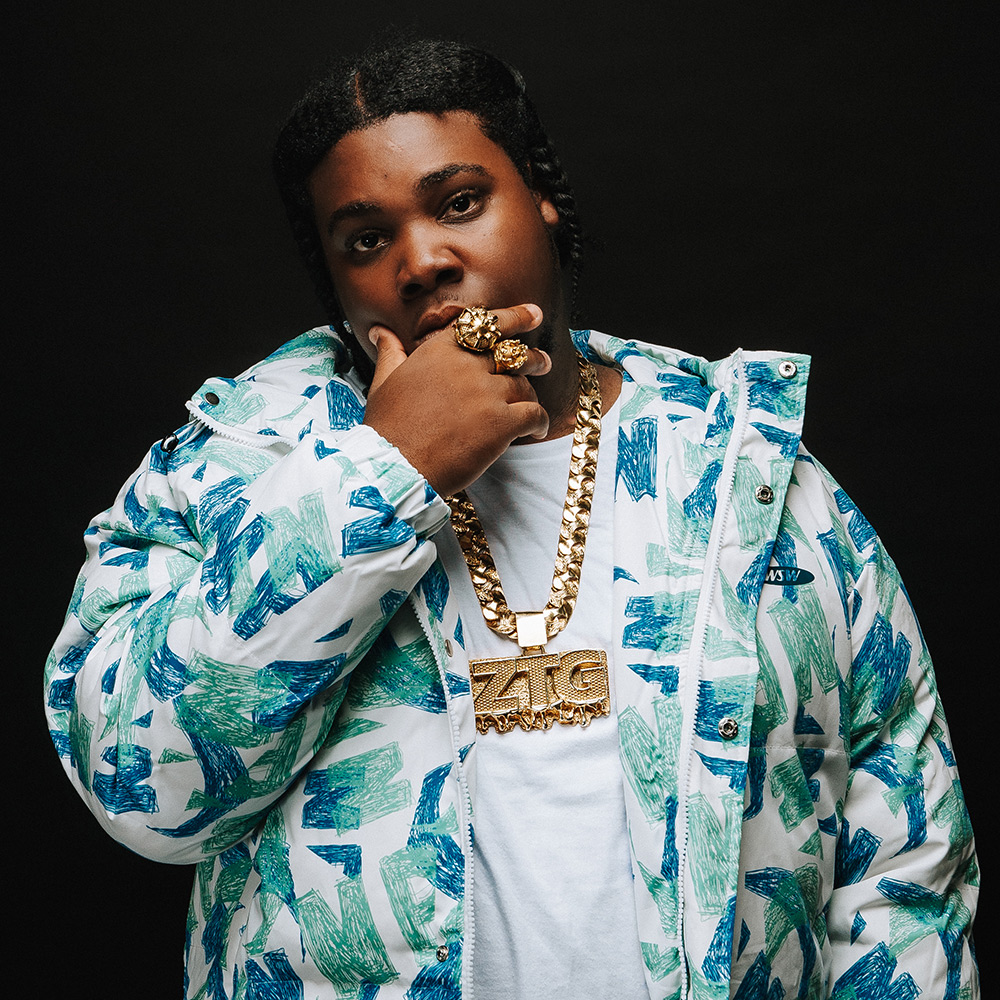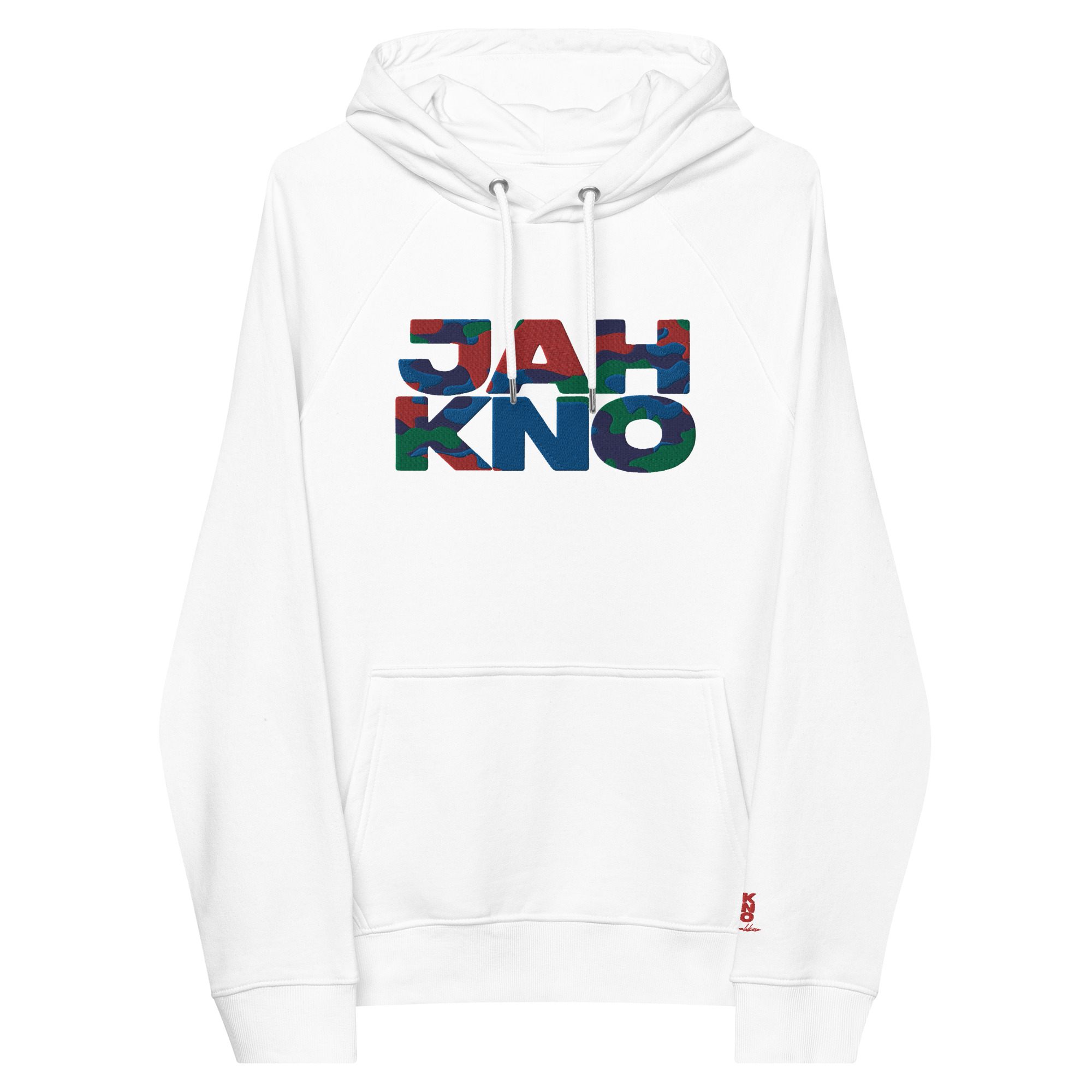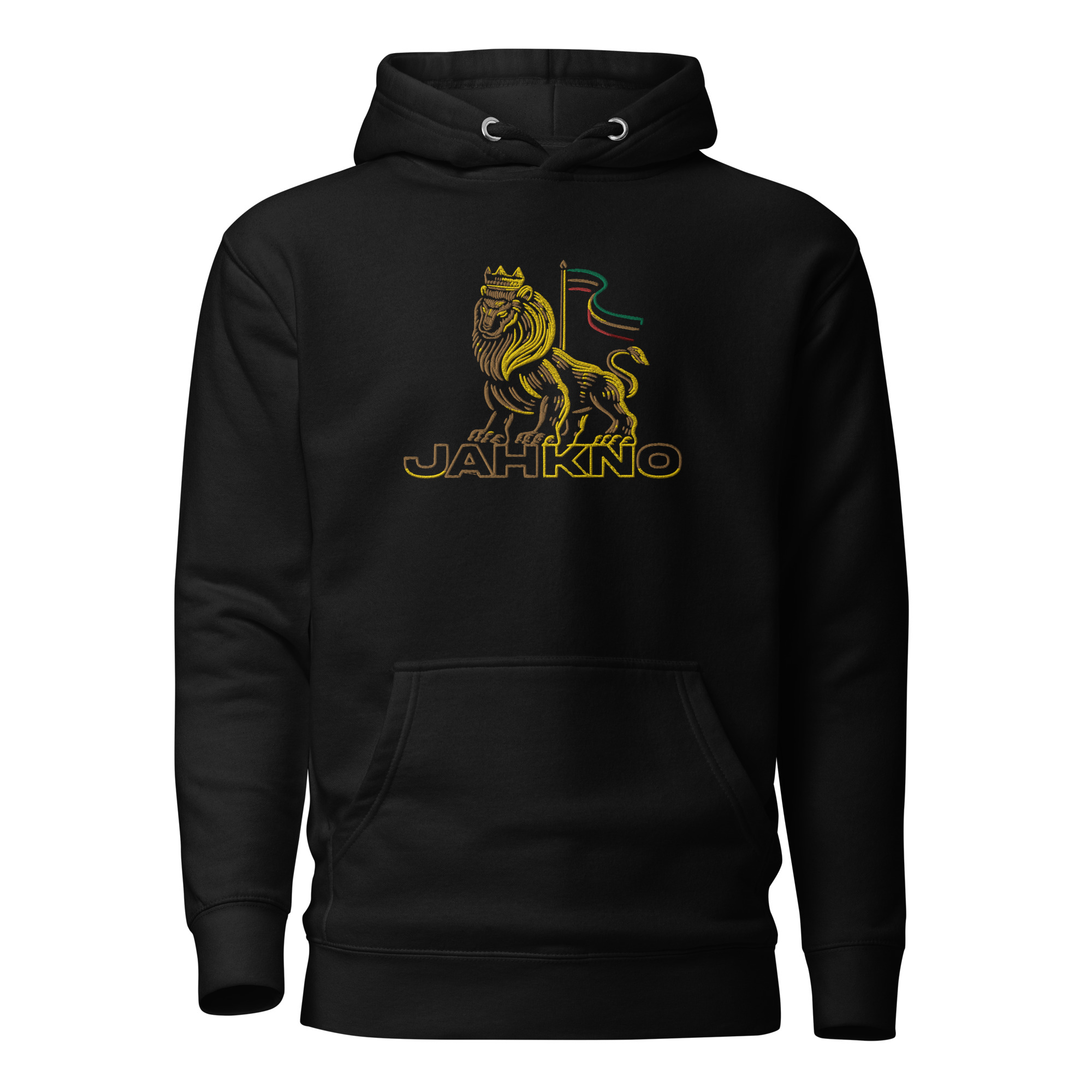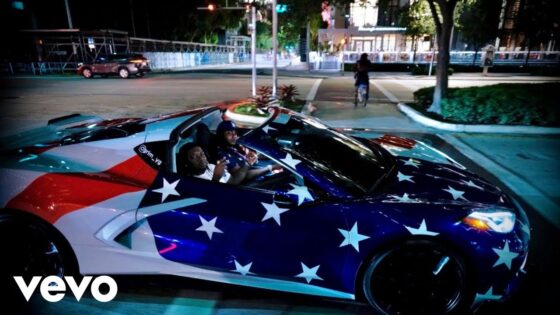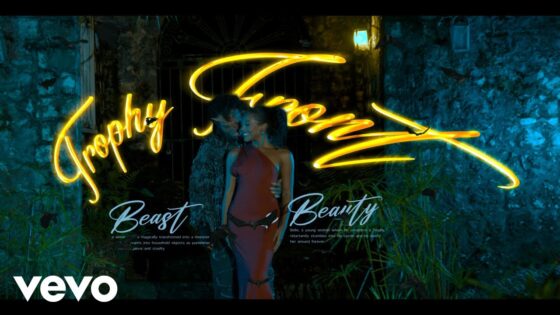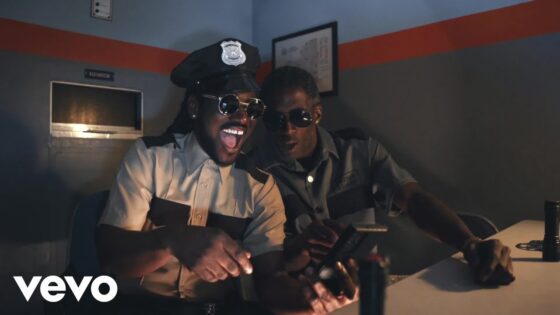I used to be an underdog, eating off the streets!” reflects fast-rising5 singer-songwriter Byron Messia (real name Dylan Byron) of his humble beginnings on the dangerous Shadwell estate in Basseterre, Saint Kitts.
“My music is about giving all the other ghetto youths motivation. I want to help them get up and do something positive with their lives.”
Despite only being 23-years-old, some would say Messia’s goal has already been achieved. His laidback, nocturnal confessional “Talibans” is currently blowing up the internet, winning co-signs from UK political rap sensation Dave and surpassing 13 million views globally. And with 1.3 million new weekly streams of his discography, there’s a sense the song will solidify Byron Messia (who was born in Kingston, Jamacia) as the latest global breakout star from the Caribbean rap scene.
The song is the perfect showcase for Byron Messia’s range, with his conversational flow and shift between dancehall and trap vocal cadences infectious to listen to. At one point he jokes about having an assault rifle that “shakes like Jada Kingdom”, the next he’s talking about growing up amid killers and somehow finding a way to survive.
Messia maintains his sense of humour and calm amid the chaos of violence, with “Talibans” clearly designed to promote supreme confidence inside of whoever presses play.
“Somebody got me angry one day and I hit the booth,” recalls Messia of creating “Talibans”. “It is me and my friends making a song about the idea of feeling like some real bad ass motherfuckers. That’s an infectious feeling.” Another breakthrough single, “Smallest Circle”, is all about the need to choose friends carefully and has clocked up an impressive 1.8 million views globally.

What makes Byron Messia so fascinating to listen to is his reliance on piano-driven beats (his song “Stay Real” samples Adele’s “Easy On Me) in a dancehall landscape that often rejects this nostalgic sound, and the way his voice shifts from scratchy to honeyed, with his songs tending to trade hopelessness for hope by their conclusion (“I know things will get better” he tellingly spits on “Hopeless”).
He sits somewhere between dancehall legend Super Cat and New York City’s Nas at his most political—Messia’s storytelling songs are similarly designed to prompt a revolution in the middle of a sweaty dance floor and make you empathise with society’s underdogs, whether that’s the drug dealers or the streetwalkers.
The artist says he is creating his own genre in real-time, which he’s confident will help turn him into a global star.
“I am mixing dancehall with rap. I feel like I am creating my own genre,” he explains. “It is called dance-soul! It is a mixture of soul vocals and pianos with the dancehall drum patterns. I like the piano as it forces me to open up and confess. Soon, dance-soul will be a global thing, trust me.”
Reflecting on his childhood, Messia says his cousin introduced him to rap music at a young age, and he subsequently became addicted to how The Notorious B.I.G. would put words together. By fifth grade he was doing freestyles on the school playground, with music providing an escape from the nefarious temptations of his neighbourhood and becoming a lifelong obsession.
“I was a kid growing up hopeless. I could have died,” he recalls. “The pain I feel will be there forever. My music is about
finding a way to deal with it. I am not afraid to show emotion. Real men aren’t afraid to cry.”
The success of “Talibans” and Smallest Circle” are prompting people to dive deep into the versatile Byron Messia’ catalogue, with 2023 albums “No Love” and 2021’s “Pills and Pain” among his artistic highlights. On early song “Ghetto Dream”, Messia tips his hat to the politics of Martin Luther King and promises to put his “momma in a house bigger than the Marriott”, forcing the listener to feel like they have a personal stake in his story.
Looking ahead to the future, Messia says this bar very much remains part of the dream.
“We just want to live comfortable. We don’t have to be the richest on the planet, but I want to give all my day one people better lives. That’s it.”
Perhaps Byron Messia’s mission statement can be founded on “Believe”, an inspiring diary-entry banger featuring Jahshii that shows the chinks in the pair’s armour, while also celebrating the resilience that pumps through their veins. “We are the future and the youths believe it,” Messia raps with real venom. “My ghetto life… believe anything in life, you can achieve.”
The artist concludes: “I’m trying to help the black people to wake up and understand what is going on; to show them how to win. Within a year I want to win a Grammy. It feels like yesterday I was on the street with no money, but now I am living out my dreams. This is just the start.”

